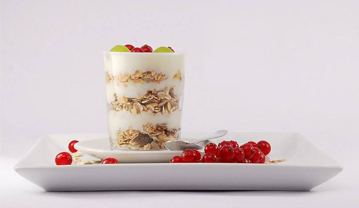YOLIDA PROBIO: PROMOTING PREVENTATIVE HEALTH
As discussed in an earlier segment in the Knowledge section of our website, YOLIDA ProBio contains special probiotic bacteria cultures that are “good”, and promote health by helping to ward off and prevent excessive proliferation of “bad” bacteria in the digestive system.
Research has shown that a large proportion of common diseases, and illnesses of all kinds, originate from “bad” bacterial pathogens that are present in the human digestive system. When there is the presence of “good” bacteria in sufficient quantities in the gut however, such as those made available by YOLIDA ProBio yogurt, human health can be helped by keeping the growth of pathogenic bacteria in check, and preventing them from proliferating to the point where they become disease causing. In other words, the presence in sufficient quantities of the “good” bacteria, help to maintain a healthy balance of bacterial flora in the digestive system.
Research has shown that a large proportion of common diseases, and illnesses of all kinds, originate from “bad” bacterial pathogens that are present in the human digestive system. When there is the presence of “good” bacteria in sufficient quantities in the gut however, such as those made available by YOLIDA ProBio yogurt, human health can be helped by keeping the growth of pathogenic bacteria in check, and preventing them from proliferating to the point where they become disease causing. In other words, the presence in sufficient quantities of the “good” bacteria, help to maintain a healthy balance of bacterial flora in the digestive system.
Special Preventative Health Benefits of Yolida ProBio
Yolida ProBio comprises of three strains of probiotic bacteria cultures. These include lactobacillus acidophilus, bifidobacterium, and lactobacillus paracaei. All of these good probiotic bacteria, either independently or together, have shown to have preventative health benefits. Over the past 2 decades many clinical studies have been undertaken, and which have yielded results indicating such health benefits.
We at Sunrise Dairy would like to share with you some of the results of this research.
Yolida ProBio comprises of three strains of probiotic bacteria cultures. These include lactobacillus acidophilus, bifidobacterium, and lactobacillus paracaei. All of these good probiotic bacteria, either independently or together, have shown to have preventative health benefits. Over the past 2 decades many clinical studies have been undertaken, and which have yielded results indicating such health benefits.
We at Sunrise Dairy would like to share with you some of the results of this research.
EVIDENCE FROM THE RESEARCH
Boosting the Number of “Good” BacteriaIn two clinical studies (Matto et al. 2006, and Alander 2001) healthy adults were given to consume, over a two week period, various combinations of probiotic bacteria of the same cultures present in YOLIDA ProBio. Changes in the composition of “good” and “bad” bacteria in the intestinal tract were observed. In both studies the results showed that the probiotic strains tended to increase the total numbers of the “good” bacteria bifidobacteria and lactobacilli in the feces. At the same time, the growth of bad bacteria such as coliforms, clostridia, enterobacteriacea, enterococci, or c. perfringens was kept from increasing.
In another clinical trial, tests on a group of volunteers of healthy adults was undertaken to determine the ability of probiotic bacteria, of the same type found in YOLIDA Probio yogurt, to remain live and active during transit in the gut (Savard et al). The results of this study showed that when the bacterial count was assessed in the fecal waste of the volunteers these type of probiotic strains did remain live and active during transit in the gut and were associated with an increase in beneficial bacteria and a reduction in potentially pathogenic bacteria.
These clinical studies tend to show that the consumption of probiotics of the species present in YOLIDA ProBio help to increase the numbers of beneficial bacteria, and at the same time may help to inhibit the growth of some undesirable bacteria in the gastrointestinal system. This is believed to support a healthy micro-flora environment in the gut and thereby help to prevent the development of some types of common disease.
Improving Bowel Function and Reducing Constipation
When food is eaten it is first broken down by chewing and then broken down by strong enzymes and acids in the stomach. From there it passes to the small intestine where the proteins, carbohydrates and fats are further broken down, and where most of the nutrients are absorbed into the body. The remaining waste then gradually passes into and through the large intestine, or colon, and forms fecal matter which accumulates and is expelled through the rectum, generally every 24 to 48 hours.
Regular bowel movements over a natural transit time and with normal consistency stools is an important component of the digestive system. It serves to allow normal nutrient absorption, a healthy balance between good and bad bacteria, and helps in maintaining the physical health of the gastro-intestinal system. However, a large proportion of the population, particularly older adults, have had experience with irregular timing of bowel movements and/or abnormal fecal matter formation, being either too hard (constipation) or too soft (diarrhea). The causes of these problems are many and varied, ranging from poor diet (particularly insufficient fibre), inactivity, stress, and anti-biotic side-effects, among other causes.
In various studies, one that included elderly residents of a nursing home (Pitkala et al.), another of a group of healthy adult females (Nishida et al.), and another comprising a group of healthy adults of both male and female (Matsumoto et al.), the results demonstrated that the consumption of probiotics of the type included in the yogurt of YOLIDA ProBio helped to improve bowel function in terms of stool frequency and also in softening the feces, and was particularly effective in helping to reduce constipation.
A further clinical trial, specifically on constipation, was undertaken here in Thailand. This was a study carried out by Siriraj Hospital, Mahidol University (Ratikorn et al). It included 50 constipated subjects between the ages of 21 and 55 years and was comprised mainly of women. The results indicated that after three weeks of ingestion of yogurt, with the same probiotic bacteria as available in YOLIDA ProBio, there was a significant improvement in the effects of both stool frequency and quality of stool texture of the constipated subjects.
When food is eaten it is first broken down by chewing and then broken down by strong enzymes and acids in the stomach. From there it passes to the small intestine where the proteins, carbohydrates and fats are further broken down, and where most of the nutrients are absorbed into the body. The remaining waste then gradually passes into and through the large intestine, or colon, and forms fecal matter which accumulates and is expelled through the rectum, generally every 24 to 48 hours.
Regular bowel movements over a natural transit time and with normal consistency stools is an important component of the digestive system. It serves to allow normal nutrient absorption, a healthy balance between good and bad bacteria, and helps in maintaining the physical health of the gastro-intestinal system. However, a large proportion of the population, particularly older adults, have had experience with irregular timing of bowel movements and/or abnormal fecal matter formation, being either too hard (constipation) or too soft (diarrhea). The causes of these problems are many and varied, ranging from poor diet (particularly insufficient fibre), inactivity, stress, and anti-biotic side-effects, among other causes.
In various studies, one that included elderly residents of a nursing home (Pitkala et al.), another of a group of healthy adult females (Nishida et al.), and another comprising a group of healthy adults of both male and female (Matsumoto et al.), the results demonstrated that the consumption of probiotics of the type included in the yogurt of YOLIDA ProBio helped to improve bowel function in terms of stool frequency and also in softening the feces, and was particularly effective in helping to reduce constipation.
A further clinical trial, specifically on constipation, was undertaken here in Thailand. This was a study carried out by Siriraj Hospital, Mahidol University (Ratikorn et al). It included 50 constipated subjects between the ages of 21 and 55 years and was comprised mainly of women. The results indicated that after three weeks of ingestion of yogurt, with the same probiotic bacteria as available in YOLIDA ProBio, there was a significant improvement in the effects of both stool frequency and quality of stool texture of the constipated subjects.
Reduced Incidence and Severity of Diarrhea
Diarrhea is a serious health condition characterized by having 3 or more loose or liquid bowel movements within a single day. It may last for several days or up to two weeks. It is caused by an infection of the intestines due to either a virus, bacteria or parasite. It can lead to serious dehydration, and to poor digestion which in turn leads to insufficient absorption of important nutrients required for normal health and daily functions. It causes significant discomfort with symptoms including stomach cramps and watery feces with the requirement for frequent trips to the toilet.
For infants and young children the most common cause of diarrhea is the rotovirus and the disease is the second most common cause of death of children under the age of 5 years worldwide (World Health Organization, April 2013). In adults the norovirus is more common. Common bacterial infections include campylobacter, salmonella, shigella, eschericha coli, and helicobacter pylori. The elderly, particularly those treated with antibiotics, may become susceptible to a toxin produced by clostridium difficile, which often causes severe diarrhea.
In various clinical studies undertaken, it has been shown that the consumption of probiotics, and in particular bifidobacterium, lactobacillus acidophilus and lactobacillus paracasei, all of the three “good” bacterial species included in the probiotic mix of YOLIDA ProBio, has a beneficial effect on reducing both the incidence and duration of diarrhea. These were the conclusions drawn from two clinical studies on infants and children (Chouraqui et al, and Saavedra et al), and several others on those of adults (Wang, et al; Bhalla; Sheu et al; and de Vrese et al).
In general, the conclusions asserted in these studies was that the presence in sufficient numbers of probiotic bacteria, such as those significantly present in YOLIDA ProBio, are able to effectively suppress the growth of many of the common forms of virus and bacteria that cause diarrhea.
Diarrhea is a serious health condition characterized by having 3 or more loose or liquid bowel movements within a single day. It may last for several days or up to two weeks. It is caused by an infection of the intestines due to either a virus, bacteria or parasite. It can lead to serious dehydration, and to poor digestion which in turn leads to insufficient absorption of important nutrients required for normal health and daily functions. It causes significant discomfort with symptoms including stomach cramps and watery feces with the requirement for frequent trips to the toilet.
For infants and young children the most common cause of diarrhea is the rotovirus and the disease is the second most common cause of death of children under the age of 5 years worldwide (World Health Organization, April 2013). In adults the norovirus is more common. Common bacterial infections include campylobacter, salmonella, shigella, eschericha coli, and helicobacter pylori. The elderly, particularly those treated with antibiotics, may become susceptible to a toxin produced by clostridium difficile, which often causes severe diarrhea.
In various clinical studies undertaken, it has been shown that the consumption of probiotics, and in particular bifidobacterium, lactobacillus acidophilus and lactobacillus paracasei, all of the three “good” bacterial species included in the probiotic mix of YOLIDA ProBio, has a beneficial effect on reducing both the incidence and duration of diarrhea. These were the conclusions drawn from two clinical studies on infants and children (Chouraqui et al, and Saavedra et al), and several others on those of adults (Wang, et al; Bhalla; Sheu et al; and de Vrese et al).
In general, the conclusions asserted in these studies was that the presence in sufficient numbers of probiotic bacteria, such as those significantly present in YOLIDA ProBio, are able to effectively suppress the growth of many of the common forms of virus and bacteria that cause diarrhea.
Improvement of Human Immune Function
While the functioning of the human immune system is a complicated one, it is well-known that at its core is the body’s production of antibodies to fight and/or ward off most types of viral or bacterial infectious challenges. This is the common basis in the development of vaccines, whereby a small dose of an agent representing the given disease is injected into the body in order to stimulate the production of antibodies that will be ready to fight any such disease should the body come in contact with it in its full onslaught.
In a recent clinical study (Rizzardini et al) which included 115 adults, the objective was to test the ability of certain species of probiotics, of the same type as used in YOLIDA ProBio (in particular bifidobacterium and lactobacillus paracasei), to act upon the human immune system in its resistance to infectious challenge. The conclusion demonstrated that the consumption of these probiotics may indeed be an effective means to improving the immune function and thereby the body’s resistance to common infections such as the flu or colds.
An earlier clinical study (Wang, et al) concluded that the regular intake of yogurt containing the probiotics of the same species as available in large numbers in YOLIDA ProBio effectively suppressed the helicobacter pylori infection in humans. In other studies the regular consumption of one or other of these same probiotics has shown to be linked to shortening the duration and reducing the severity of colds among college students, as well as reducing the number of missed school days (Smith, et al); and to the reduction of the incidence and duration of respiratory tract infections among infants (Taipale, et al; and Rautava, et al).
The results from all of the above studies indicate that the regular consumption of yogurt with probiotics, such as YOLIDA ProBio, may help to increase the body’s resistance to common infections by strengthening the function of the human immune system.
While the functioning of the human immune system is a complicated one, it is well-known that at its core is the body’s production of antibodies to fight and/or ward off most types of viral or bacterial infectious challenges. This is the common basis in the development of vaccines, whereby a small dose of an agent representing the given disease is injected into the body in order to stimulate the production of antibodies that will be ready to fight any such disease should the body come in contact with it in its full onslaught.
In a recent clinical study (Rizzardini et al) which included 115 adults, the objective was to test the ability of certain species of probiotics, of the same type as used in YOLIDA ProBio (in particular bifidobacterium and lactobacillus paracasei), to act upon the human immune system in its resistance to infectious challenge. The conclusion demonstrated that the consumption of these probiotics may indeed be an effective means to improving the immune function and thereby the body’s resistance to common infections such as the flu or colds.
An earlier clinical study (Wang, et al) concluded that the regular intake of yogurt containing the probiotics of the same species as available in large numbers in YOLIDA ProBio effectively suppressed the helicobacter pylori infection in humans. In other studies the regular consumption of one or other of these same probiotics has shown to be linked to shortening the duration and reducing the severity of colds among college students, as well as reducing the number of missed school days (Smith, et al); and to the reduction of the incidence and duration of respiratory tract infections among infants (Taipale, et al; and Rautava, et al).
The results from all of the above studies indicate that the regular consumption of yogurt with probiotics, such as YOLIDA ProBio, may help to increase the body’s resistance to common infections by strengthening the function of the human immune system.
References
Alander M. International Dairy Journal, 2001; 11:817-825.
Bhalla A. ACCP, 2011.
Chouraqui JP et al. Journal of Pediatric Gastroenterol Nutrition, 2004; 38:288-292.
De Vrese M, et al. Journal of Dairy Research, 2011; 78:396-403.
Matsumoto et al. Intestine Microbiology Magazine, 2001; 14:97-102.
Matto J, et al. International Dairy Journal, 2006; 16:1174-1180.
Nishida, S. et al. Milk Science, 2004; 53:71-80.
Pitkala K.H. et al. Jounal of Nutrition Health and Aging, 2007; 11:305-311.
Raitikorn S. et al. Siriraj Medical Journal, 2012; 64:105-109.
Rautava S, et al. British Journal of Nutrition, 2009; 101; 1722-1726.
Rizzardini G. et al. British Journal of Nutrition, 2012; 107:876-884.
Saavedra JM, et al. Lancet1994; 344:1046-1049.
Savard, et al. International Journal of Food Microbiology, 2011; 149 (1) 50-57.
Sheu BS et al. Alimentary Pharmacology & Therapeutics, 2002; 16:1669-1675.
Smith TJ, et al, British Journal of Nutrition, 2012: 1-9.
Taipale T, et al, British Journal of Nutrition, 2011; 105:409-416.
Wang K-Y et al. American Journal of Clinical Nutrition, 2004; 80:737-741.
Alander M. International Dairy Journal, 2001; 11:817-825.
Bhalla A. ACCP, 2011.
Chouraqui JP et al. Journal of Pediatric Gastroenterol Nutrition, 2004; 38:288-292.
De Vrese M, et al. Journal of Dairy Research, 2011; 78:396-403.
Matsumoto et al. Intestine Microbiology Magazine, 2001; 14:97-102.
Matto J, et al. International Dairy Journal, 2006; 16:1174-1180.
Nishida, S. et al. Milk Science, 2004; 53:71-80.
Pitkala K.H. et al. Jounal of Nutrition Health and Aging, 2007; 11:305-311.
Raitikorn S. et al. Siriraj Medical Journal, 2012; 64:105-109.
Rautava S, et al. British Journal of Nutrition, 2009; 101; 1722-1726.
Rizzardini G. et al. British Journal of Nutrition, 2012; 107:876-884.
Saavedra JM, et al. Lancet1994; 344:1046-1049.
Savard, et al. International Journal of Food Microbiology, 2011; 149 (1) 50-57.
Sheu BS et al. Alimentary Pharmacology & Therapeutics, 2002; 16:1669-1675.
Smith TJ, et al, British Journal of Nutrition, 2012: 1-9.
Taipale T, et al, British Journal of Nutrition, 2011; 105:409-416.
Wang K-Y et al. American Journal of Clinical Nutrition, 2004; 80:737-741.




